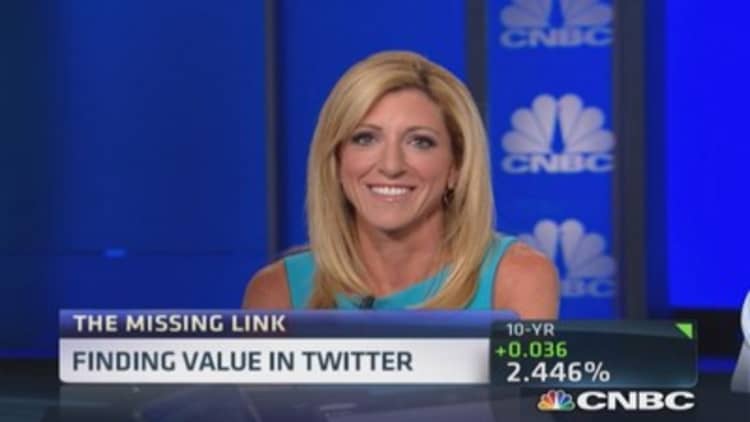
Twitter is announcing its first big move into e-commerce: It's testing a "buy now" button to allow users to buy products directly from a tweet. The idea is to make mobile shopping quick and easy, so a purchase can be made in just a few taps, said Nathan Hubbard, Twitter's commerce chief.
Twitter is working with 28 partners in its initial test, including retailers Burberry and Home Depot, a number of artists, including Eminem, Pharrell, and Rhianna, and nonprofits, including Donorschoose, RED, and the Nature Conservancy. Twitter isn't selling virtual goods, like gift cards—just physical products. "The temporal nature of Twitter makes real-time perishable goods seem to fit right in our wheelhouse," said Hubbard.
Here's how it'll work: An artist on tour can tweet photo of an official tour shirt with a "buy now" button. Or Home Depot can tweet about a hurricane warning with a 'buy now' button for hurricane supplies. Or Burberry can tweet an offer to buy a limited edition coat, or a dress available at a discount for a limited period of time—like a flash sale site.
The company will save credit card information and shipping address so users can make a quick impulse purchase. Initially the 'buy now' button will be available only to a small percent of Twitter users—less than 10 percent—but it will quickly roll out across its user base. And the company says it plans to add more commerce partners over the holiday shopping season. As for the hurdle of getting people to input their credit card info, Twitter says everything is encrypted and processed securely, and won't be shared without users' permission. Twitter has partnered with mobile payments company Stripe, as well as e-tailer Fancy, along with Gumroad and Musictoday, for the initial test.

"First, we'll use the signal and the incredible data that we get from tweets to really tailor the experience to you," Hubbard said. "The second is this direct connection and the kinds of exclusive and limited edition products that can happen when you have that direct relationship. And the third is ... we're in a world that's moving to on-demand services—and so anything temporal, with urgency, with perishability we think will work on Twitter."
The retail partners can tweet products as part of their regular tweets, or in ads, or promoted tweets. The company says the new commerce platform won't have any impact on this year's revenue. But down the line, certainly, there seems significant potential both from the cut Twitter can take from purchases that happen on its platform and from the additional advertising retailers would buy to get more people to see the stuff they're selling. Hubbard said Twitter's ad business is based on the idea of bringing native ads, or promoted tweets, into the stream "in a way that's not disruptive and enhances the experience."
And though Twitter's early tests don't include anything like music, Hubbard said this is just the beginning: "We're starting in physical goods because that's a way for us to test the user experience. But we think that digital goods and in particular on-demand services, because of the real-time of the nature of Twitter, are a great opportunity for us. We're going to start in physical goods and you'll see us expand rather quickly."
--By CNBC's Julia Boorstin
This story has been updated to reflect the most recent number of partners Twitter is working with.


